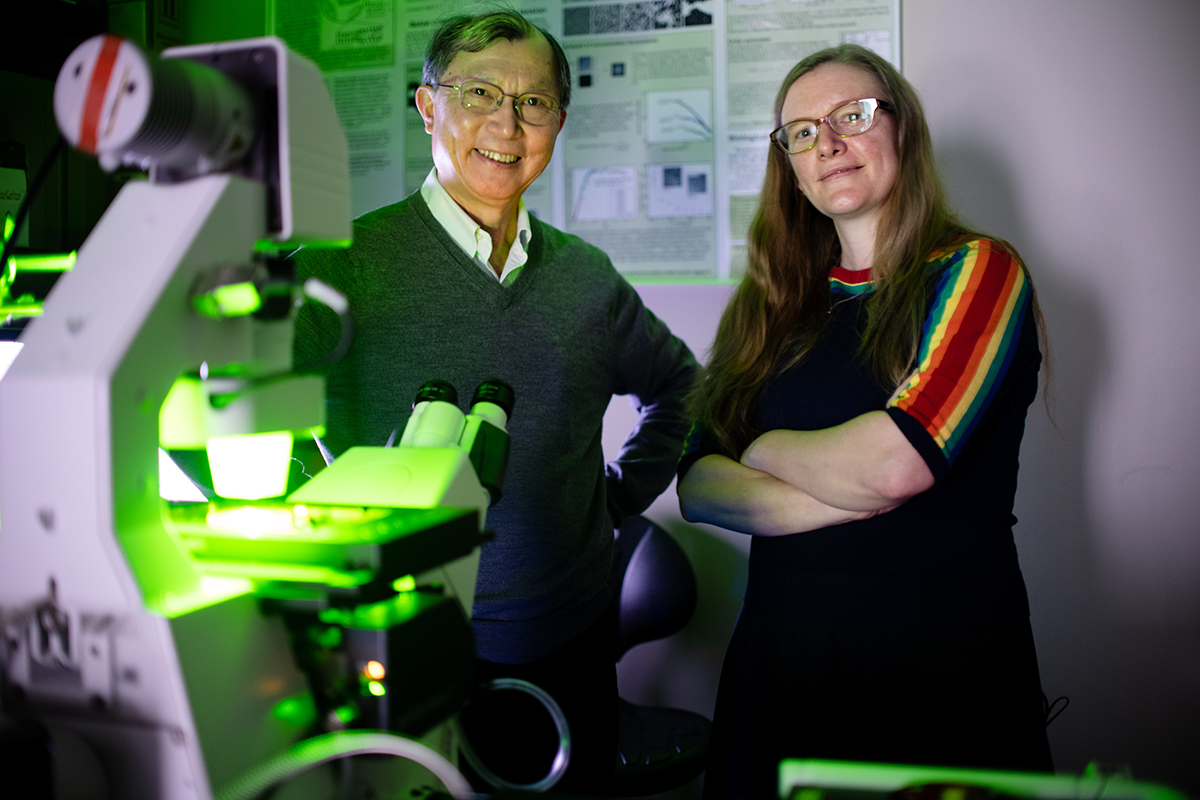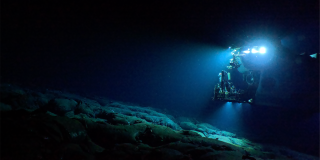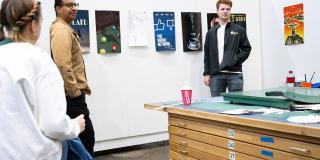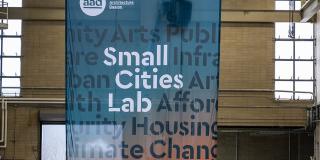
Supported by a grant from the National Science Foundation, a team of Lehigh faculty are collaborating with colleagues at the University of Bordeaux, France, to develop advanced imaging techniques and innovative microscopic probes to determine how biological cells respond to force and to train U.S. students in these techniques.
Led by Daniel Ou-Yang, professor of physics, and Aurelia Honerkamp-Smith, assistant professor of physics, a team of Lehigh students will work in Bordeaux laboratories during the summer and at Lehigh for the rest of the year to develop imaging techniques and new biomaterials. Students are mentored by faculty as they explore novel methods of measuring the mechanical properties of soft materials of multicellular organoids, time-lapse confocal imaging of mechanotransduction during stem cell differentiation and cell migration in complex biological environments, and magnetic nanoparticle-mediated transport of membrane-bound proteins.
The main goal of this project is to train U.S. students while developing advanced imaging techniques and innovative tools to determine how biological cells respond to forces. These experiments will help researchers understand how stem cells differentiate into functional cell types, how cancer cells spread, and how blood flow is regulated. Understanding how cells interact with their environment is essential for developing treatments for a variety of health-related issues, ranging across joint repairs, cancer therapeutics, tissue engineering, and heart and vascular disease prevention and treatment
“The idea is to match one student with multiple advisors in the lab,” Ou-Yang says. “The program is designed with a goal to pair an undergrad student with a graduate student so they participate in a team project that involves more than one faculty adviser. It’s very hands-on, very immersive, so the students will integrate their work done at Lehigh with that in French laboratories. It’s good for students’ futures, not only as some research experience on their resume, but in how they realize major research collaborations involving multiple researchers in an international setting are carried out and how they can be part of it. They get a different global view of how the research is done differently and which parts are done similarly.”
“I think for students, a very intensive 10-week international research experience in Bordeaux can give a student the confidence to say, ‘Look, I really am a scientist, I've done this very unusual thing,’” Honerkamp-Smith adds. “I think that's valuable for students that might not initially feel like they belong in the research enterprise.”






